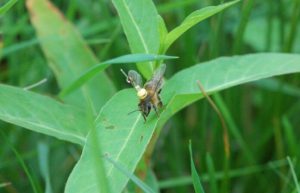
Honey Bee Navigation
NEW RESEARCH REVEALS A QUITE INTERESTING FACT ABOUT HOW HONEY BEES FIND THEIR WAY HOME – WITHOUT A GPS ANIMAL STUDIES BY KAMAL SAINI Researchers…
Read More
NEW RESEARCH REVEALS A QUITE INTERESTING FACT ABOUT HOW HONEY BEES FIND THEIR WAY HOME – WITHOUT A GPS ANIMAL STUDIES BY KAMAL SAINI Researchers…
Read More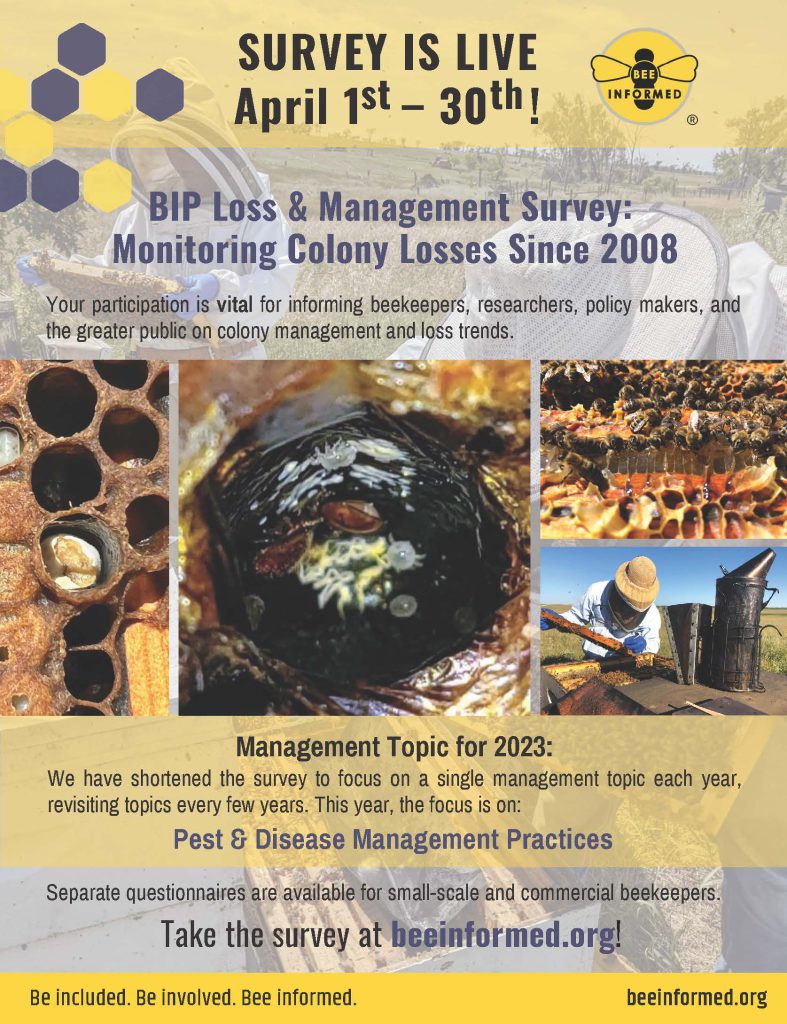
Take the Survey: https://beeinformed.org/
Read More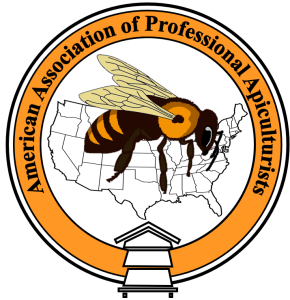
The American Association of Professional Apiculturists (AAPA) hosted its annual meeting, the American Bee Research Conference (ABRC), in Jacksonville, Florida on January 5th and…
Read MoreDOI: https://doi.org/10.55406/ABRC.23 The American Association of Professional Apiculturists (AAPA) hosted its annual meeting, the American Bee Research Conference (ABRC), in Jacksonville, Florida on January 5th…
Read More
Indoor ‘queen banking’ could help beekeepers deal with changing climate Keeping queen bees chilled in indoor refrigeration units can make storing them more stable…
Read More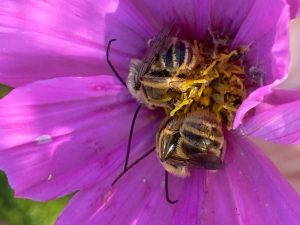
Colorado launches study on native pollinators New state law calls for research; insects important for agriculture and ecology By Jim Mimiaga Journal staff writer…
Read More
Honey bee populations of the USA display restrictions in their mtDNA haplotype diversity Mohamed Alburaki1*, Shayne Madella1, Jillian Lopez1, Maria Bouga2, Yanping Chen1 and Dennis vanEngelsdorp3 1USDA-ARS Bee Research Laboratory,…
Read More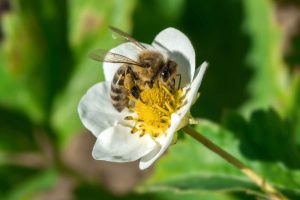
AI can track bees on camera. Here’s how that will help farmers Artificial intelligence (AI) offers a new way to track the insect pollinators essential…
Read More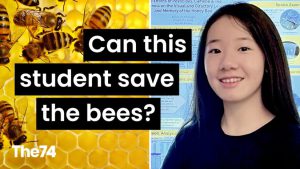
A California Teen’s Research on Bees’ Memory Is Helping Avert Colony Collapse Disorder By The 74 With the help of a local beekeeper, San Jose’s…
Read More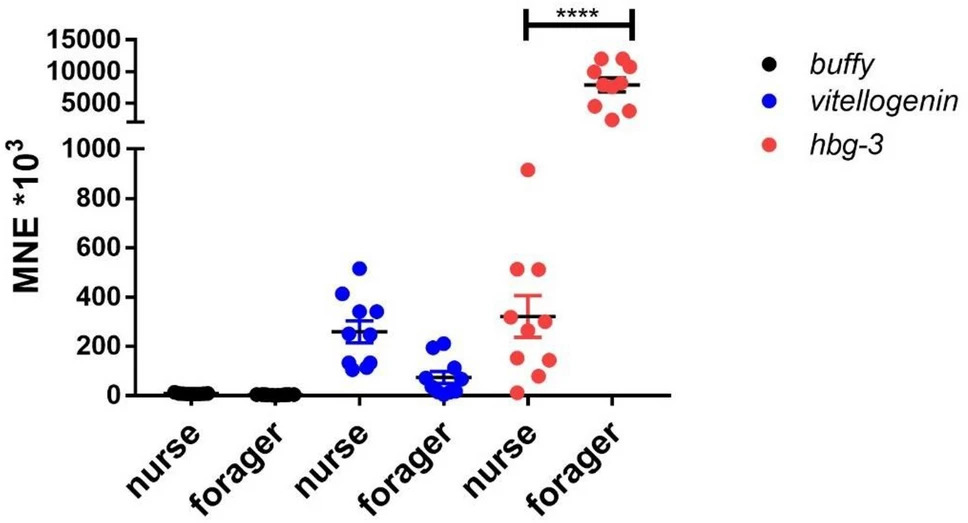
Different effects of pesticides on transcripts of the endocrine regulation and energy metabolism in honeybee foragers from different colonies Verena Christen Scientific Reports volume 13, Article number: 1985 (2023)…
Read More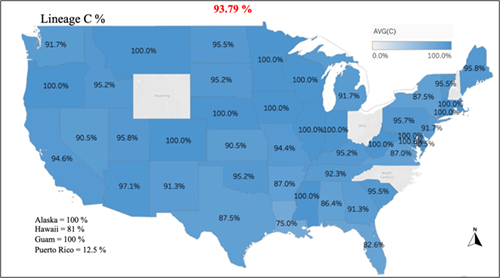
DNA Research Finds Low Genetic Diversity Among U.S. Honey Bees For media inquiries contact: Autumn Canaday, (202) 669-5480 U.S. agriculture owes many thanks to the…
Read More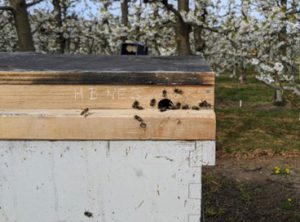
Honey Bee Heat Warms Up Fellow Pollinators for Early-Season Blooms By Paige Embry Honey bees (Apis mellifera) are the go-to pollinator for early-blooming fruit…
Read More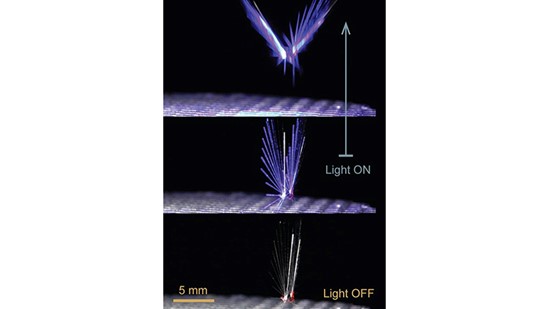
Light-controlled flying ‘fairy’ robot could be adapted for artificial pollination Professional Engineering A tiny flying device can be controlled by light thanks to stimuli-responsive…
Read More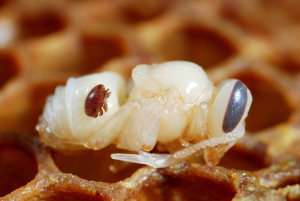
Parasitic Mites’ Biting Rate May Drive Transmission Of Deformed Wing Virus In Honey Bees By Eurasia Review Varroa destructor is an ectoparasitic mite that can…
Read More
Almond Update: Cold Storage for Bees Becoming More Popular Using cold storage to house bee colonies in the winter is not a new practice…
Read More
UNIVERSITY of MARYLAND A drop in longevity for lab-kept honey bees could help explain colony losses and lower honey production in recent decades….
Read More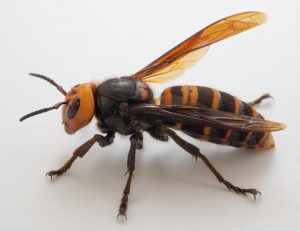
Giant Queen Murder Hornet from China in 2004 Responsible for Invading Europe [Study] By Louise Franco A giant queen murder hornet which arrived from China…
Read More
Use of gene-edited organisms in wild could put pollinators at risk Experts urge caution over new biotech By AFP Dozens of scientists, experts and…
Read More
Uptrend in global managed honey bee colonies and production based on a six-decade viewpoint, 1961–2017 Bernard J. Phiri, Damien Fèvre & Arata Hidano Scientific Reports volume 12,…
Read More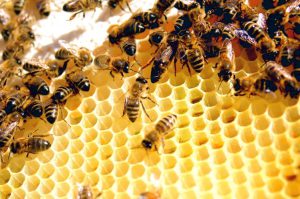
US Approves World’s First Honeybee Vaccine Against the Deadly Hive Bacteria By Louise Franco A honeybee vaccine, meant to protect honeybees against the deadly hive…
Read More